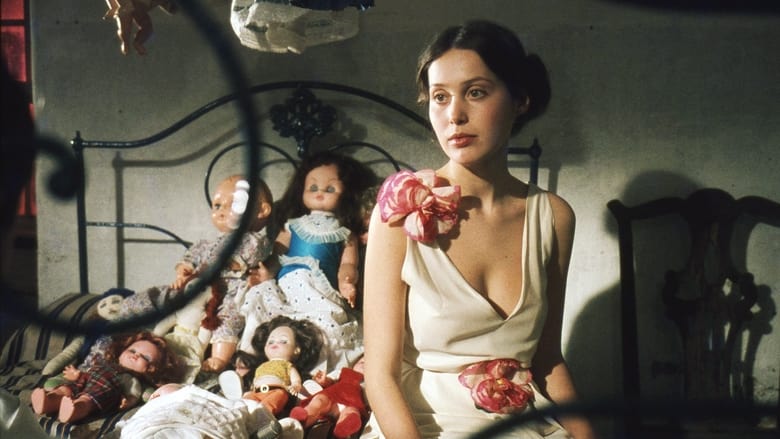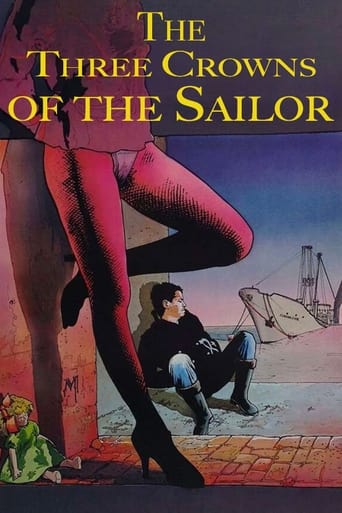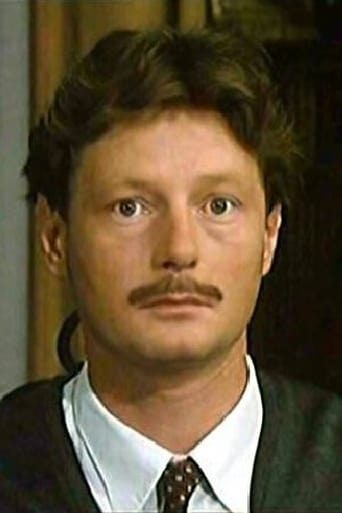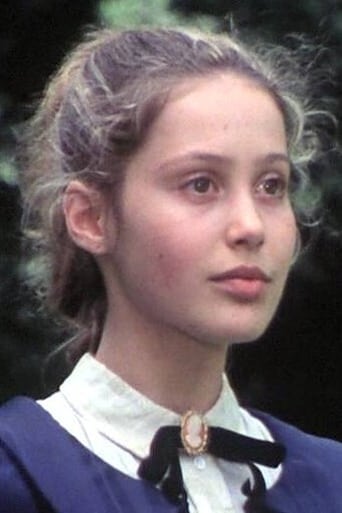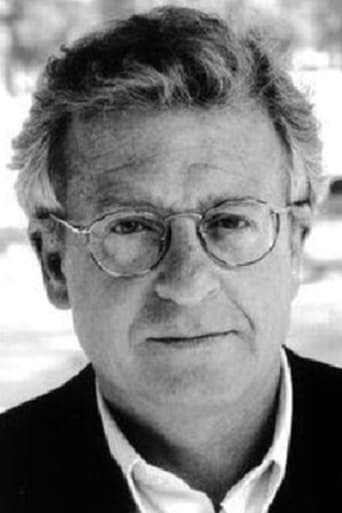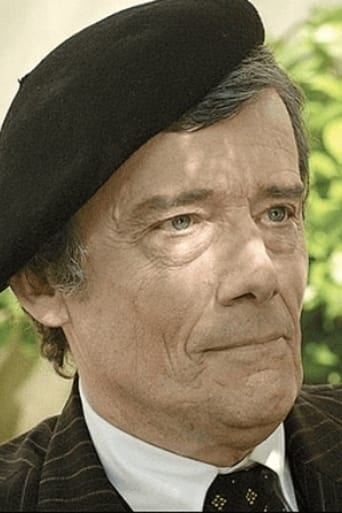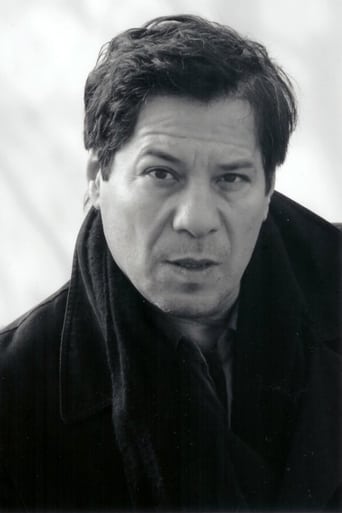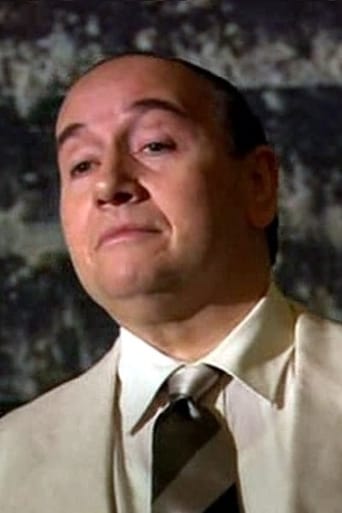Shortly after murdering his professor, a young man encounters a sailor who offers him a position on his ship in exchange for 3 Danish crowns and his attention as he recounts his life story.
Reviews
If the ambition is to provide two hours of instantly forgettable, popcorn-munching escapism, it succeeds.
Great movie! If you want to be entertained and have a few good laughs, see this movie. The music is also very good,
It's an amazing and heartbreaking story.
This is a gorgeous movie made by a gorgeous spirit.
Hi. Glad I got your attention. Let's just say I'm borrowing some of Ruiz's style by making a bold statement and backing it up with, well, nothing. If you dig analogies, you will understand that rocking your world, as Fight Club purports to do, is hardly a one-sided affair. When worlds are rocked, it is fair that denizens of worlds fight back to restore order. Thus, me.I am going to disregard the various film-making tropes which Ruiz employs, as I consider them gimmicky filler to thin story. Thin? Truly, variations on a theme. Don't get me wrong, I love such things in music, art, and film; but this film is tedious. Almost two hours here to say what might be said in 30 minutes, "classed up" with trappings. Let me tell you, Orson Welles dances all over this mess. Welles had a sense of humor, apparent in nearly everything he did, and this humor gave proper depth to such classics as The Trial and Citizen Kane, among the many. Greenaway employed art to back his vision. Ruiz is merely tempestuous.But I don't want to be dismissive. Ruiz is prolific, passionate, and determined. I can't fault that. However, the surrealism he purports to bring, a la Bunuel or Jodorowsky, is of a protégé, not a master.The best philosophy from Three Crowns Of The Sailor is that money has meaning. For me, this at least deposes any anti-capitalist meanings the Left may derive for drivel. The means of exchange is cash, and the gift is (what?) immortality? I would be better mood for this film is the exchange resulted in something concrete, but the defeatist attitude which the film perpetually resonates seems to whiff of nihilism, and if that is your cup of tea, oh well.I do not mind the ambiguity of outcomes, but narrative is narrative, and intentional confusion for its own sake doesn't please me. You may ask me, how then do you enjoy Jodorowsky? With effort! Now, surprise! I give the film 7/10 for causing me to write a review at all!
There is a folklore legend in Chile about a ghost ship that sails the seas with the souls of the drowned on board. It's called the Caleuche. Chilean filmmaker Raoul Ruiz uses this legend as the basis of this movie. One night Tadeusz, a student, murders his friend and tutor, the owner of an antique shop. The disturbed young man wanders through the streets and meets a drunken sailor who offers him a deal: for 3 Danish crowns he'll get the fugitive a job at his ship - but he must get the money before the night ends, and he must listen to the sailor's story.The Three Crowns of the Sailor is, among other things, a movie about personal stories and about telling stories. The movie gives as much emphasis to the importance of the student listening to the sailor's story as it does to the way the non-linear episodes that constitute the narrative are filmed. What the sailor narrates is banal in itself: tales of love, murder, friendship, money - the stuff we've seen in movies a thousand times before. But it's the way the protagonist jumps from one situation to another and how Ruiz and his crew capture these situations that make the movie so remarkable.A ship is never in the same place long and so it's the perfect vehicle for a loosely plotted story. The sailor travels around the world, meeting a cast of bizarre men and women with their own little stories, with the beautiful landscape always changing (portions of the movie were filmed in Portugal and France).The classic master of cinematography, Sacha Vierny (long-time collaborator of Alain Resnais and Peter Greenaway), makes use of a myriad of tricks to make each segment of the movie unique - black-and-white filming that recalls film noir, orange filters that submerge the movie in a golden light, Vertigo zooms, reflections in mirrors, strange lighting effects, and obtrusive uses of foreground objects. The cinematography treads a fine line between shameless self-absorption and visual poetry - there isn't a shot that doesn't call attention to itself, and someone may justifiably get tired of it after a while; but for those viewers who love the way a movie looks like, this is a fascinating experience.Ruiz imbues several scenes with a sense of surrealism - in one of my favourite episodes, a prostitute takes the sailor to her private bedroom, the one she only takes special clients to; it's a creepy place, not only because she keeps her coffin there (on which she glues a chewing gum for each client), but also because of the juxtaposition of innocence and perversion symbolised by dolls hanging from the ceiling and emitting bright lights from inside their hollow heads.Jean-Bernard Guillard delivers an efficient performance as the sailor. I don't think this movie is too concerned with characters, so Guillard was a bit on his own here, trying to make his character coherent from scene to scene whiteout ever going into his psychology or giving him conflicts, leaving him enigmatic and unpredictable - but he pulls off a charismatic and emotional performance nevertheless The movie's finale is the movie itself - unexpected, indefinite, and of lyrical beauty. The Three Crowns of the Sailor is not a movie one watches to know what happens next, to see things come together like in a traditional narrative. It's a movie that asks the viewer to enjoy each scene in itself and not care too much about cause and effect. If the viewer takes this simple suggestion, he'll certainly enjoy this most unusual movie.
"Les Trois couronnes du matelot"/Three Crowns of the Sailor (1983) is the third of the three early Raoul Ruiz films on an indispensable Blaq Out set along with "L'Hypothèse du tableau volé" and "La Vocation suspendue" (see my remarks on the other two). This I liked almost as much as "Hypothesis" and wish I had had the time to watch it again; it gets perhaps a wee bit long, but on the whole it is a wonderfully delirious pastiche of various themes and visual tropes from Orson Welles (most specifically "Lady from Shanghai", "Mr. Arkadin" and towards the end, "The Trial"), film noir generally, Sternberg's "Macao" and other 40s-50s Hollywood-in-the-exotic-ports-of-call type pictures -- all filtered through Ruiz's wonderfully playful postmodern/magical realist sense of story. Like the two earlier features it is incredibly dense, self-serious on its face but self-mocking and amused when one delves deeper. Most of the film consists of a sailor -- in many respects as naive and reckless as Welles' Michael O'Hara -- telling his life story -- or stories, of adventures at sea, femmes fatale, murders, and money, always lots and lots of money -- to a young man in a spectacular restaurant/ballroom in Antwerp (I think). It's really mind-boggling, but in a very different way from the two earlier films in the set, and in many ways it's a good film to set you up for Manoel dans l'île des merveilles. The photography, in particular the black and white segments (those set in "present-day", in Antwerp) is quite striking and is the work of the great French cinematography Sacha Vierny, who had worked with Buñuel and Resnais among others, and went on to work with Greenaway. After seeing this early series of films, one can see that that -- like so many of the odd occurrences in so many early Ruiz films -- was no coincidence. DVD rental
This is just about perfect for what it is, and what it is elevates it to something that can change you.Life is a matter of stories and also about reflection on self. So all true stories are in some way at least partly about storytelling. The only question is whether the fold has power. Such can have extreme power when things flow more fluidly than you allow your mind to work and does so cinematically. This has that power.The basic structure is of a vessel of stories, where stories live as parked fragments of life. The "ship" needs a live human to be the viewer of the stories, but because this is reflective, the viewer/listener participates in these fragments as well. But they are not disconnected fragments but story elements that self-assemble in unexpected ways. Some run parallel. Some recount others. Some elaborate, or contain or spawn others. Some negate, affirm, kill. Others baffle, countering those that explain. This isn't Borges, whose map is revealed. This is a universe of silkworms weaving an incomprehensible wad of threads that intersect, merge, disappear. Sacha Vierny is the cinematographer, and oh what a poet the man is! Its all stories, and constantly spoken, but the images are what matters the spine of the thing is cinematic, leveraging that special ability to hypnotize that only a master of image can throw.I had not known of this film before now. For some reason, Ruiz's work isn't appreciated and circulated as it should be. Its strange. I rate this as the second of his films and the second allowed for this year that I allow on my must see list. Its delicate. Sparse, yet rich, like a nude drunken stroll through a stormy spice bazaar in a land whose language you do not speak.When you see it, realize that it is dangerous stuff, that if you are either incredibly weak or very strong, it will capture you and you will sail on the ship of lost narrative.Forever.Ted's Evaluation -- 4 of 3: Every cineliterate person should experience this.
Top Streaming Movies











